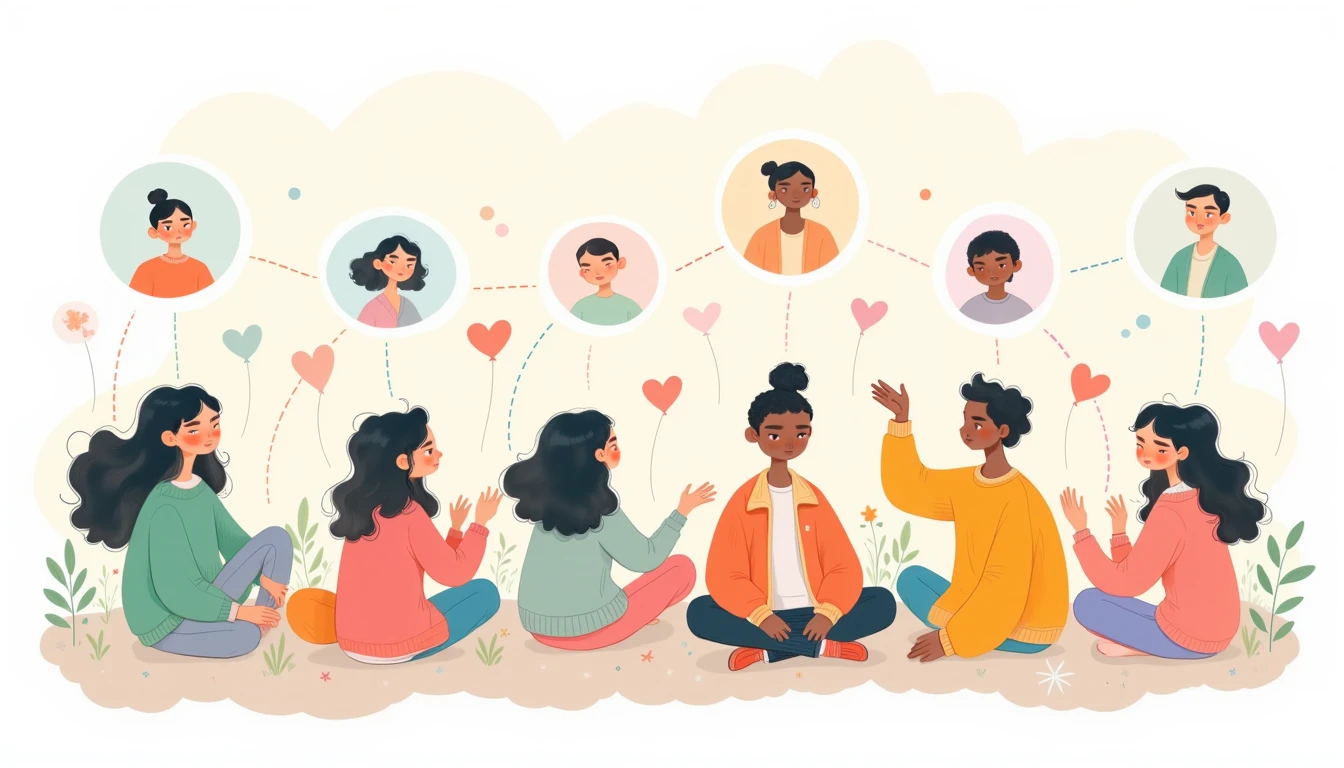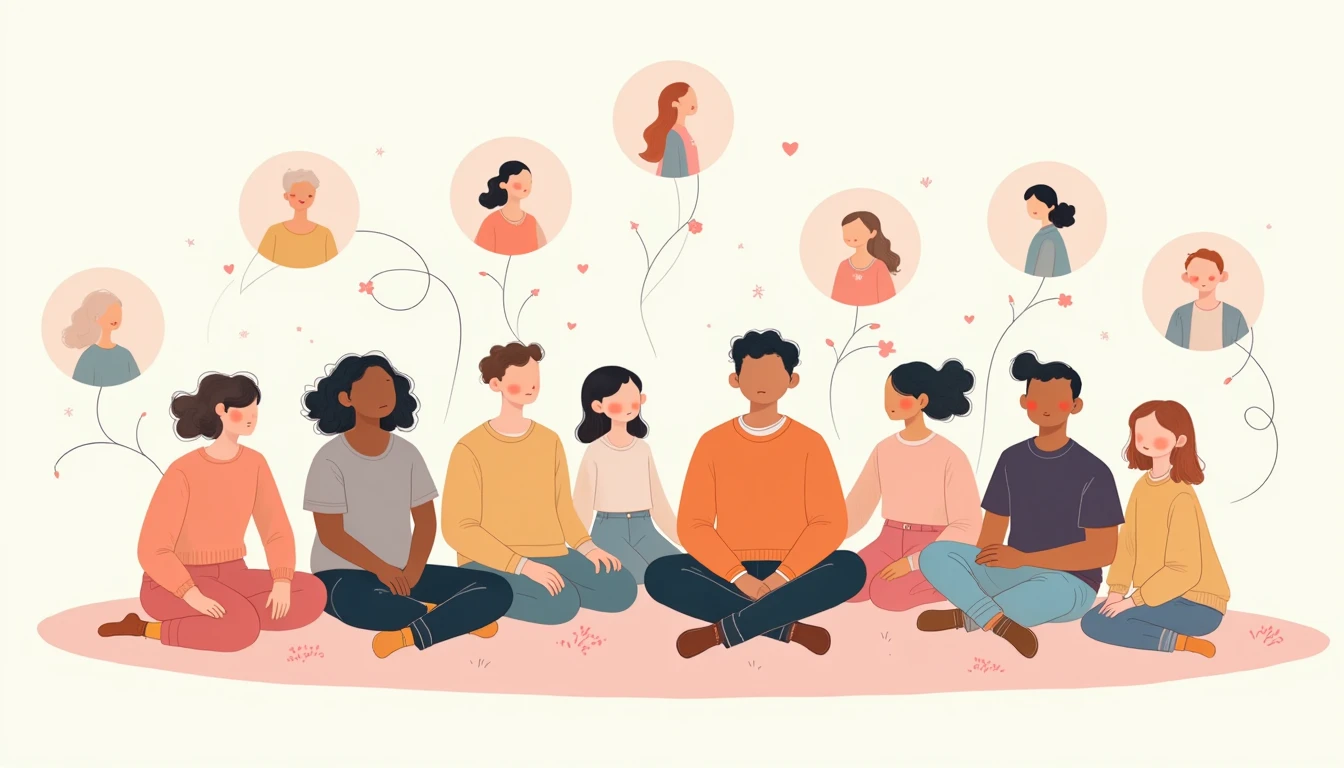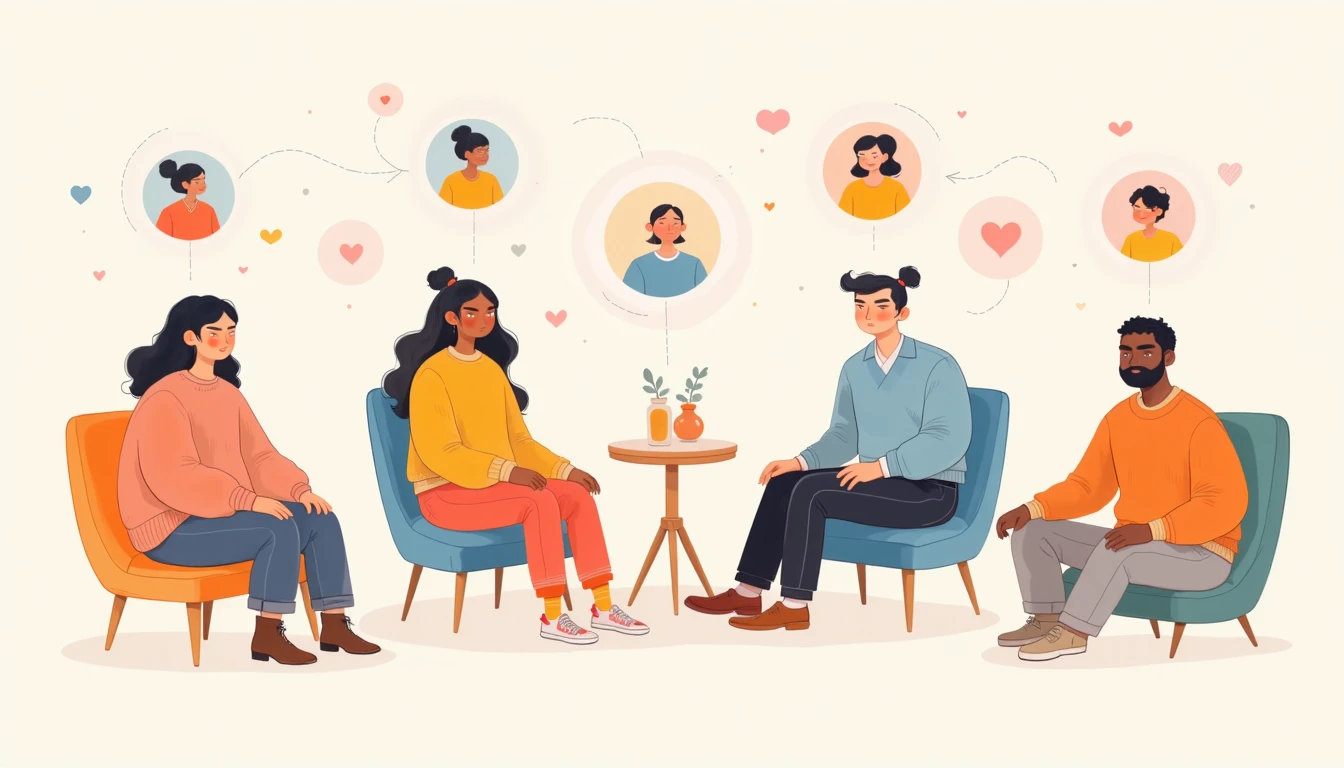Finding Free Therapists Made Easy
Finding Free Therapists Made Easy
If you've ever found yourself lying awake at 3 a.m., staring into the darkness, overwhelmed by your thoughts and wondering who you could possibly talk to without emptying your wallet, you're not alone. In a world where mental health care can often seem like a luxury, finding affordable or even free therapy can feel like searching for a needle in a haystack. But the good news is, there are more options out there than you might think. Let's explore some pathways to getting the help you need without breaking the bank.
Imagine walking through a sunlit forest, where each leaf represents a different therapeutic option. Among these leaves, some are traditional routes like in-person therapy, while others lead to more unconventional paths such as online platforms or even AI therapists. Each path offers its own unique set of benefits and considerations, and the best path for you will depend on your personal needs and circumstances.
Traditional Free Therapy Options
Finding a therapist who offers their services for free can be a bit like finding a rare gem, but they do exist. Let's explore some of the more traditional routes you might consider.
Community Mental Health Centers
Community mental health centers are often an underutilized resource. These centers provide services to individuals regardless of their ability to pay and are typically funded by state and local governments. They offer a wide range of services, from individual therapy to group sessions, and are staffed by licensed professionals.
- How to Access Services: Many community centers work on a sliding scale fee basis, meaning the cost is determined by your income. Some may offer completely free services, depending on your financial situation. It’s a good idea to call your local center and ask about their offerings.
- What to Expect: These centers are a great option if you prefer face-to-face interaction and value the experience of seasoned professionals. However, be prepared for potentially long wait times due to high demand.
University Counseling Services
If you are a student, university counseling services can be a fantastic resource. Most colleges and universities provide free counseling to their students, helping them navigate everything from academic stress to personal issues.
- Accessing Help: Simply reach out to the counseling center at your institution. They often have a range of services, including short-term individual therapy, workshops, and support groups.
- Experience: It's important to note that university counselors often specialize in issues affecting college-aged individuals. This can be particularly helpful if you're navigating challenges unique to this stage of life.

Online and Teletherapy Options
The digital age has brought a wealth of new opportunities to access mental health care. Online therapy platforms have become increasingly popular, providing flexibility and often, affordability.
Free Online Therapy Platforms
There are several online platforms that offer free mental health support, either through volunteer counselors or peer support networks. These platforms can be a lifeline for those who need immediate support or prefer the anonymity of online interactions.
- Examples and How They Work: Platforms like 7 Cups of Tea provide free emotional support through trained volunteer listeners. While these listeners are not licensed therapists, they can offer empathetic support and a listening ear.
- Considerations: While these services are accessible and immediate, they are best suited for emotional support rather than therapy for severe mental health issues.
Sliding Scale and Low-Cost Online Therapists
Many online therapy platforms offer sliding scale fees, which provide access to licensed therapists at reduced rates. This can be a great option if you're looking for professional help without the high cost.
- Popular Platforms: Websites like BetterHelp or Talkspace often have pricing tiers based on your income. They can connect you with licensed therapists who can help with a range of issues.
- Pros and Cons: The convenience of online therapy is unmatched. You can have your sessions from the comfort of your home, at times that fit your schedule. However, it's important to ensure that the platform you choose offers therapists who are licensed in your state.

Exploring AI Therapists
In the ever-evolving landscape of mental health care, AI therapists have emerged as an intriguing option. While they may sound like something out of a science fiction novel, these digital companions can offer real support.
What Are AI Therapists?
AI therapists are digital programs designed to simulate conversation with a therapist. They use natural language processing to understand and respond to your inputs, providing guidance, support, and mental health exercises.
- How They Work: Apps like Woebot or Wysa use AI to engage with users in therapeutic conversations. They can help track moods, suggest coping strategies, and even offer cognitive behavioral therapy exercises.
- Benefits: AI therapists are available 24/7, making them an excellent option for immediate support. They can also be a non-intimidating first step for those new to therapy.
Limitations of AI Therapy
While AI therapists can be a great support tool, they are not a replacement for human therapists, especially for complex or severe mental health issues.
- Understanding the Limits: AI lacks the depth of empathy and understanding that a human therapist can provide. They are best used as a supplement to traditional therapy, offering additional support between sessions.
- Privacy Concerns: As with any digital tool, it's important to consider privacy and data security. Ensure that the platform you choose has strong privacy policies in place.
Making the Most of Free Therapy Options
Once you've decided on an option that might work for you, it's time to dive in and make the most of the resources available. Here are some tips to get started.
Being Proactive
Taking the first step towards therapy can be daunting, but being proactive is key. Reach out to potential therapists or platforms and ask questions about their services and what you can expect.
- Questions to Ask: Inquire about the therapist's experience, their approach to therapy, and how they handle confidentiality. If you're using an online platform, check their privacy policies and what to expect from sessions.
- Setting Goals: Before starting therapy, consider what you hope to achieve. This could be as simple as wanting someone to talk to or as complex as working through past traumas.
Staying Open and Committed
Therapy is a journey, and like any journey, it requires commitment and an open mind. It's important to give the process time to work.
- Consistency is Key: Try to attend sessions regularly and be open to the process, even when it's challenging. Remember, it's normal to feel a range of emotions during therapy.
- Reflect and Adjust: Take time to reflect on what you've learned and how you're feeling. If something isn't working, don't hesitate to discuss it with your therapist or consider trying a different approach.

Conclusion
Finding free or affordable therapy is not only possible, but it's also a vital step towards taking care of your mental health. Whether you choose traditional routes like community centers, embrace the digital age with online platforms, or try something new with AI therapists, there’s a world of support waiting for you.
Remember, reaching out for help is a sign of strength, not weakness. So take a deep breath, and take that first step. You deserve to have someone in your corner, cheering you on and helping you navigate the complexities of life. And if you ever find yourself lost in that metaphorical forest, know that there are paths to guide you home.
Frequently Asked Questions
How can I find free therapy options in my area?
Start by researching local community mental health centers, as they often provide services based on a sliding scale or for free. Additionally, if you're a student, check with your university's counseling services for available resources.
Are online therapy platforms a good alternative to in-person therapy?
Yes, online therapy platforms can be a great alternative, especially if you need flexibility. They offer a range of services, from free emotional support to professional therapy sessions at a reduced cost.
What should I consider when choosing an AI therapist?
Consider the app's privacy policies, the type of support they offer, and how well they align with your needs. Remember, AI therapists are best used as a supplement to traditional therapy.
Can I switch therapists if I'm not comfortable with my current one?
Absolutely. It's important to feel comfortable with your therapist. If you're not satisfied with your current therapy, discuss your concerns with them or explore other options that might be a better fit for you.
Are you interested in learning programs and a personal AI companion to talk to? Try out MindLumen AI to improve your mental wellbeing with AI therapy and companionship. You can try it out for free.
Get started with MindLumen


